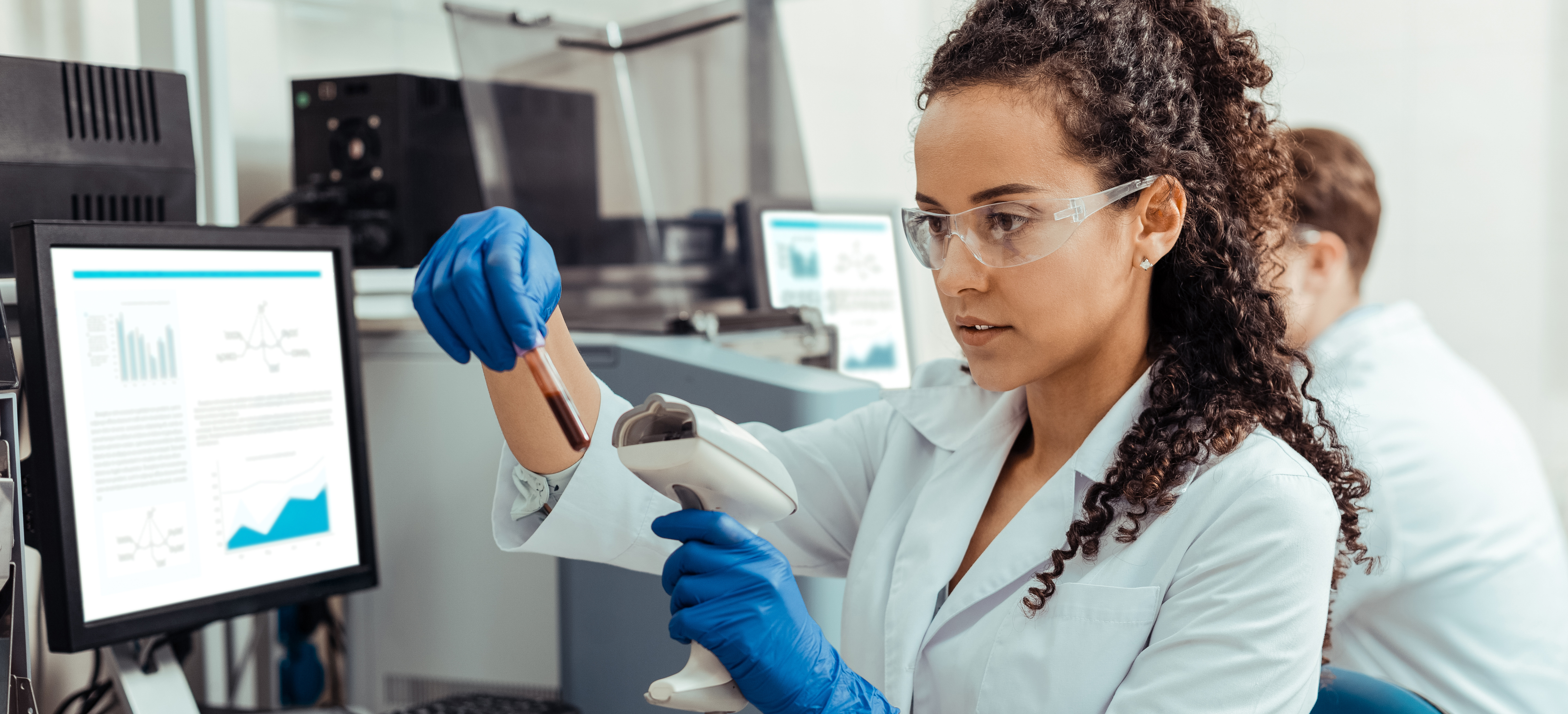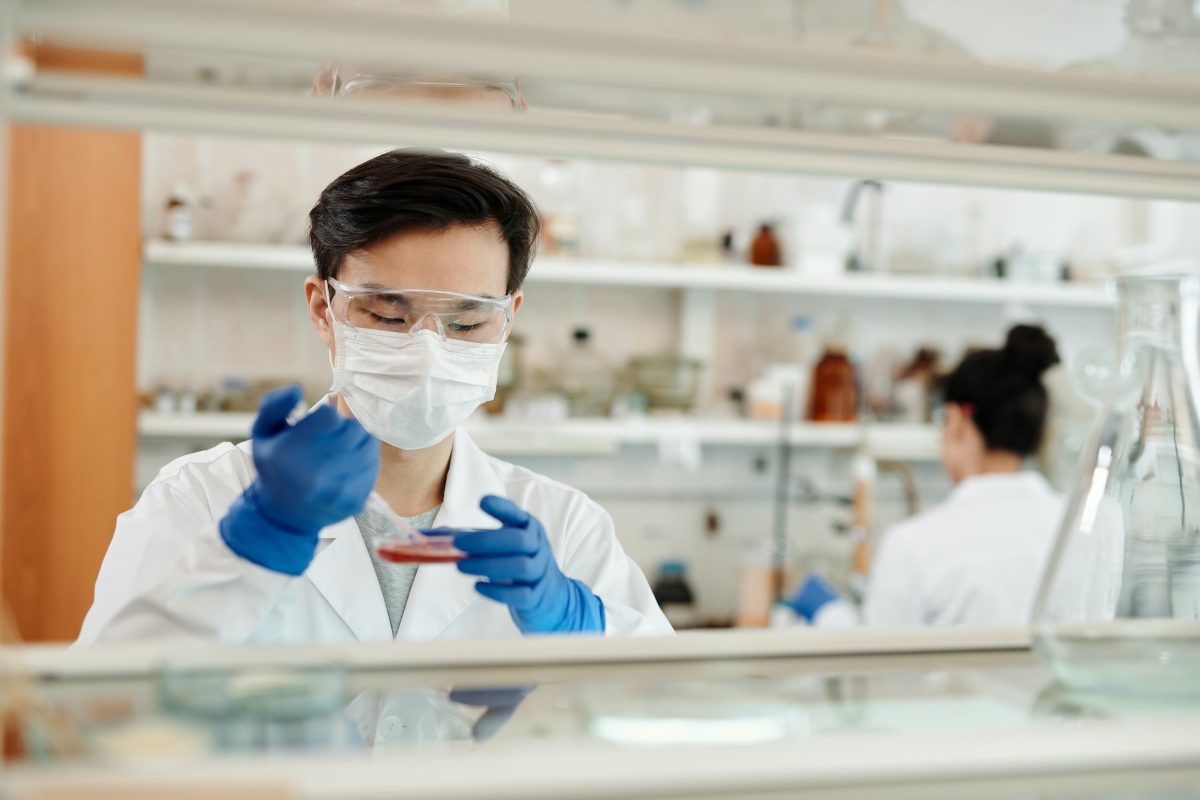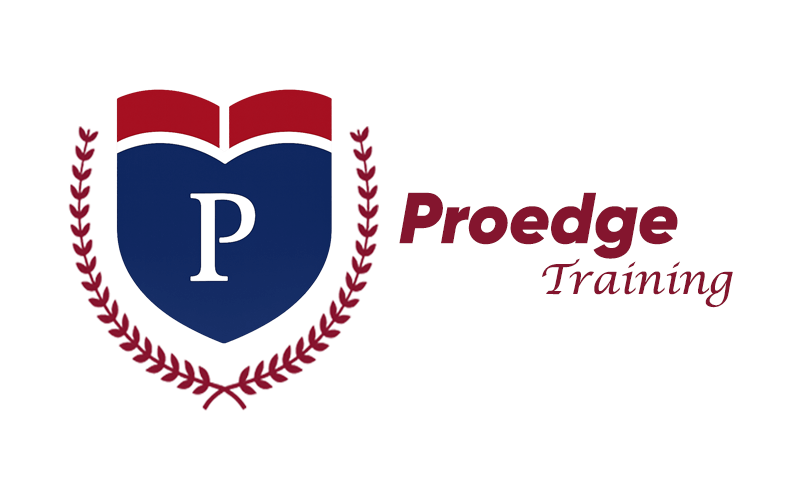
How to Become a Laboratory Technician: Step-by-Step Guide
Becoming a laboratory technician involves specific steps and skills. You need the right education and training. Curious about how to start this career? Let’s explore what it takes. Laboratory technicians play a key role in scientific research and healthcare. They handle samples, conduct tests, and help scientists and doctors make important discoveries. To become one, you need a solid foundation in science and technology. Many start with a degree or certificate in laboratory sciences. This gives you the basic knowledge needed for the job. Hands-on training is also crucial. It helps you understand the tools and techniques used in real labs. With dedication and the right guidance, you can step into this fulfilling career. Ready to learn more about how to become a laboratory technician? Let’s dive deeper into the steps you need to take.Career Pathways
Becoming a laboratory technician offers a fulfilling career path. These professionals play a vital role in medical and scientific fields. They conduct tests, analyze results, and help in diagnosing illnesses. The career pathways for a laboratory technician are diverse and promising. With the right education and certifications, you can excel in this field. Understanding the educational requirements and certification options is key to success.Educational Requirements
Pursuing a career as a laboratory technician starts with the right education. An Associate Degree in Laboratory Technology is often the first step. This degree provides foundational knowledge in science and lab practices. Some key subjects include:- Clinical Laboratory Science
- Microbiology
- Biochemistry
- Hematology
| Education Level | Program Duration | Focus Areas |
|---|---|---|
| Associate Degree | 2 years | Basic Lab Skills, Clinical Practice |
| Bachelor’s Degree | 4 years | Advanced Lab Techniques, Research Skills |
Certification Options
Certifications enhance your credibility in the field. They demonstrate your competence and commitment. After completing the necessary education, pursuing a laboratory technician certification is advisable. Popular certifications include:- American Society for Clinical Pathology (ASCP)
- National Credentialing Agency for Laboratory Personnel (NCA)
- American Medical Technologists (AMT)
Essential Skills
Becoming a Laboratory Technician is a rewarding career path. This role requires a blend of essential skills that are crucial for success. Whether you’re aiming to work as a Clinical Laboratory Technician or a Microbiology Technician, mastering these skills is key. Let’s explore the technical and soft skills you’ll need to excel in this field.Technical Skills
Technical skills are the backbone of any Laboratory Technician’s role. These skills ensure that you can effectively handle laboratory tasks and processes. To begin with, Laboratory Equipment Handling is a critical skill. You must know how to operate and maintain various lab instruments. This includes microscopes, centrifuges, and spectrophotometers. Moreover, understanding Laboratory Safety Protocols is essential. Safety is paramount in any lab setting. You need to be familiar with handling chemicals and biological samples safely. Proper disposal of hazardous materials is also crucial. Aspirants should focus on gaining Technical Laboratory Skills through comprehensive training. Here are some key areas:- Sample preparation and analysis
- Data collection and interpretation
- Quality control and assurance
| Skill | Description |
|---|---|
| Equipment Handling | Operate and maintain lab instruments |
| Safety Protocols | Ensure lab safety and proper disposal |
| Data Analysis | Collect and interpret data accurately |
Soft Skills
While technical skills are important, Soft Skills For Technicians cannot be overlooked. These skills help you work effectively in a team and communicate your findings clearly. Communication is at the core of these skills. You must be able to relay information accurately to colleagues and supervisors. This includes written reports and verbal communication. Attention to detail is another critical soft skill. Labs require precision. A small mistake can lead to incorrect results. Thus, being meticulous in your work is vital. Problem-solving abilities also play a major role. Labs often present unexpected challenges. Being able to think on your feet and find solutions is a valuable trait. Here is a list of essential soft skills:- Effective Communication
- Attention to Detail
- Problem-solving
- Teamwork
Job Responsibilities
Becoming a laboratory technician involves understanding the essential job responsibilities that define this career. It’s not just about wearing a lab coat and performing tests. A laboratory technician plays a crucial role in ensuring accurate diagnostic testing and maintaining the quality control in labs. These professionals are responsible for handling laboratory equipment with precision, following laboratory procedures, and applying clinical laboratory techniques. Their role also involves adhering to strict lab safety practices to ensure a safe working environment. Every task performed by a laboratory technician contributes to the broader field of medical laboratory technology and supports the healthcare system.Daily Tasks
A laboratory technician’s day is filled with varied tasks that require meticulous attention and laboratory skills. Here are some daily activities:- Preparing samples for analysis.
- Operating and maintaining laboratory equipment.
- Conducting routine diagnostic testing.
- Recording and analyzing data accurately.
- Collaborating with scientists and healthcare professionals.
| Task | Description |
|---|---|
| Sample Preparation | Collecting and preparing biological samples for testing. |
| Equipment Operation | Using machines for precise measurements and tests. |
| Data Recording | Entering findings into databases for analysis. |
Safety Protocols
Safety protocols are the backbone of any laboratory technician training. Understanding lab safety practices is vital. This ensures protection from hazardous materials. Technicians follow strict guidelines to minimize risks. Here’s how they maintain safety:- Wearing protective gear such as gloves, goggles, and lab coats.
- Ensuring proper ventilation in work areas.
- Disposing of waste according to safety regulations.
- Regularly cleaning and sterilizing equipment.
- Conducting routine safety checks.
Work Environments
Becoming a laboratory technician opens doors to diverse work environments. This career offers an exciting blend of science and practical tasks. Whether you aim to be a clinical laboratory technician or work in a research setting, understanding your work environment is crucial. It impacts your daily tasks, interactions, and career growth. Let’s explore the types of laboratories and workplace culture that shape a laboratory technician’s journey.Types Of Laboratories
Laboratories come in various forms. Each offers unique challenges and opportunities. Here’s a look at different types of laboratories where technicians might work:- Clinical Laboratories: These are often in hospitals or clinics. Medical laboratory technicians analyze blood, urine, and other samples. Duties include ensuring accurate test results to aid doctors in patient diagnosis.
- Research Laboratories: Found in universities or private companies. Laboratory technicians assist in experiments. They help in discovering new drugs or technologies.
- Environmental Laboratories: These focus on testing air, water, and soil. Technicians ensure compliance with environmental regulations. They play a role in public health and safety.
| Type of Laboratory | Primary Focus |
|---|---|
| Clinical | Patient health |
| Research | Innovation and discovery |
| Environmental | Public safety |
Workplace Culture
Understanding workplace culture is vital for a successful laboratory technician career. It influences job satisfaction and productivity. Here are aspects to consider:- Teamwork: Collaboration is key in a laboratory environment. Technicians often work in teams. Sharing ideas and solutions boosts efficiency.
- Attention to Detail: Precision is crucial. Laboratory technician skills include meticulous data recording. Errors can lead to incorrect conclusions.
- Safety Protocols: Laboratories follow strict safety rules. Adhering to these ensures a safe work environment. It protects technicians and maintains sample integrity.
- Clear communication channels.
- Continuous learning opportunities.
- Supportive management.
- Recognition of achievements.
Advancement Opportunities
Becoming a laboratory technician opens doors to various advancement opportunities. As you gain experience and knowledge, you can explore many paths to boost your career in laboratory technology. Whether through further education or specialization, a laboratory technician can grow and evolve in this dynamic field. Opportunities abound for those ready to enhance their skills and take on new challenges in the world of medical laboratory science.Further Education
Further education is key for laboratory technicians aiming to advance their careers. Many professionals choose to pursue an Associate Degree in Laboratory Technology. This degree provides a deeper understanding of complex laboratory procedures and techniques. It also enhances your credentials, making you more competitive in the job market. Consider these further education options:- Bachelor’s Degree in Biomedical Science: Offers a broader understanding of biological processes and lab techniques.
- Certification Programs: Programs like the Laboratory Technician Certification validate your skills and can lead to higher pay.
- Workshops and Seminars: These can update your lab technician skills and keep you informed about the latest advancements in technology.
| Education Level | Potential Benefits |
|---|---|
| Associate Degree | Entry-level positions, foundational skills |
| Bachelor’s Degree | Higher salary, broader job opportunities |
| Certification | Specialized skills, validation of competencies |
Specializations
Specializations allow a laboratory technician to focus on specific areas within the field. This can lead to more responsibilities and better job titles. Specializing in areas like clinical laboratory technician roles or medical laboratory science can be rewarding. Common specializations include:- Clinical Chemistry: Focuses on analyzing blood and other bodily fluids.
- Microbiology: Studies microorganisms and their effects on humans.
- Hematology: Involves the study of blood and related disorders.

Job Market Insights
Embarking on a career as a laboratory technician offers a rewarding path filled with opportunities. Understanding the job market insights is crucial to navigate this career successfully. This section delves into the demand trends and salary expectations for laboratory technicians, providing a comprehensive overview of the current landscape. As medical laboratory technology advances, the demand for skilled technicians grows, influencing job outlook and salary scales.Demand Trends
The demand for laboratory technicians is experiencing a steady rise. This trend is driven by the growing healthcare industry and technological advancements in medical laboratory technology. With an increasing aging population, the need for diagnostic testing is higher than ever. Several factors contribute to the demand for skilled laboratory technicians:- Aging Population: More health issues requiring laboratory tests.
- Technological Advancements: New testing methods and tools.
- Healthcare Expansion: More facilities need skilled technicians.
| Sector | Demand Level |
|---|---|
| Healthcare | High |
| Research | Moderate |
| Education | Moderate |
Salary Expectations
Understanding salary expectations helps in planning a successful laboratory technician career. The laboratory technician salary range varies based on experience, location, and sector. For an entry-level laboratory technician, salaries typically start at the lower end of the scale. As technicians gain experience and additional certifications, their earning potential increases.- Entry-Level Laboratory Technician: $30,000 – $40,000 annually.
- Mid-Level Technician: $40,000 – $50,000 annually.
- Experienced Technician: $50,000 and above.
Networking Strategies
Networking Strategies play a crucial role in developing your career as a laboratory technician. Establishing strong professional connections can open doors to new opportunities. It can also help you stay updated with the latest advancements in Medical Laboratory Technology. Whether you’re aiming to enhance your Laboratory Technician Skills or seeking Certification For Lab Technicians, effective networking can support your journey. Let’s explore some strategies to build and expand your network.Professional Organizations
Joining Professional Organizations can significantly impact your career in laboratory science. These organizations offer a platform to connect with peers, industry experts, and potential employers. They also provide resources for Professional Development In Lab Science.- Access to workshops and seminars focusing on Laboratory Technician Duties.
- Opportunities to participate in conferences that discuss the Job Outlook For Laboratory Technicians.
- Networking events to meet professionals with diverse Laboratory Technician Skills.
| Association | Focus Area |
|---|---|
| American Society for Clinical Laboratory Science (ASCLS) | Certification For Lab Technicians, advocacy |
| National Accrediting Agency for Clinical Laboratory Sciences (NAACLS) | Accreditation, Laboratory Technician Training |
Online Communities
Online Communities are another valuable resource for networking. They offer a convenient way to connect with others in the field of laboratory technology. Participating in these communities can broaden your understanding of Medical Laboratory Technology.- Join forums that discuss Laboratory Technician Duties and challenges.
- Engage in social media groups focused on Laboratory Technician Skills development.
- Participate in webinars and Online Courses For Lab Technicians.
- Flexibility to learn at your own pace.
- Access to a wide range of topics and experts.
- Building a global network without geographical constraints.

Application Tips
Becoming a laboratory technician opens doors to an exciting career in science and healthcare. Aspiring lab techs need more than just the right education. They must present themselves effectively during the application process. Whether crafting a resume or preparing for an interview, certain strategies can enhance your prospects. Below are some valuable tips for applying to laboratory technician positions.Resume Building
Creating a standout resume is crucial. It’s the first impression employers get of your qualifications. Here are some Laboratory Technician Resume Tips to consider:- Highlight relevant skills: Focus on key Laboratory Technician Skills such as attention to detail, analytical abilities, and proficiency in lab equipment.
- Showcase your education: Clearly state your Laboratory Technician Education Requirements and any Laboratory Technician Training Programs you’ve completed.
- Include certifications: Mention any Laboratory Technician Certification you possess. Certifications can make you stand out.
- Detail your experience: Use bullet points to describe your previous roles. Explain Laboratory Technician Duties and how they prepared you for this job.
| Section | Details |
|---|---|
| Education | Degree, institution, year |
| Certifications | Certification name, year obtained |
| Skills | Technical skills, soft skills |
Interview Preparation
Preparing for an interview is as important as your resume. Anticipating Laboratory Technician Interview Questions can give you a competitive edge. Here are some strategies:- Research the company: Understand their mission and values. Tailor your answers to align with their goals.
- Understand the job description: Familiarize yourself with the Laboratory Technician Job Description. Highlight your experiences that match these duties.
- Practice common questions: Prepare for queries about your experience, skills, and why you chose this Laboratory Technician Career Path.
- Show enthusiasm: Employers value candidates passionate about the work.






